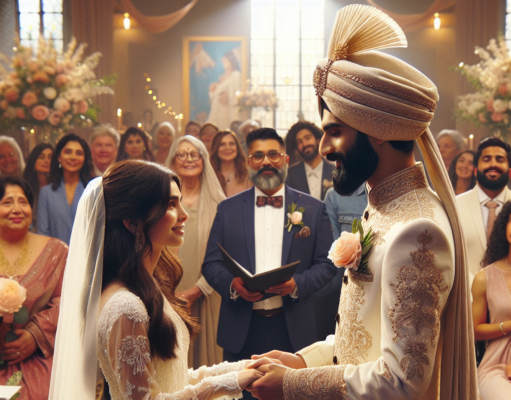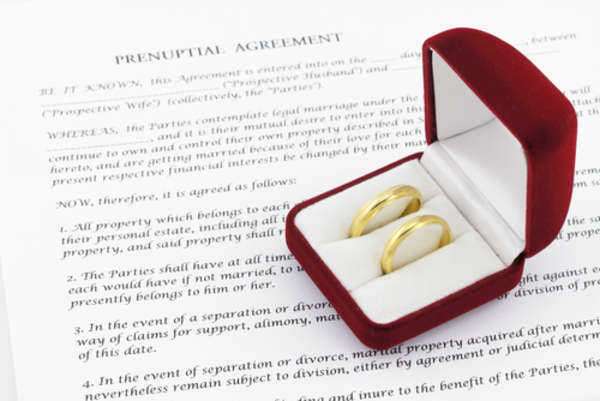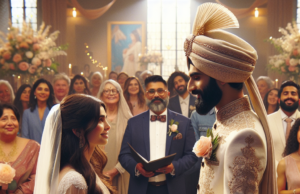Common Law Marriage New York

Guide to New York Common Law Marriage
If you have been cohabiting with a significant other for several years and consider yourself married, you may wonder if NY common law marriage laws allow you to have the same rights as other married couples.
This guide can help you understand the basics of common law marriage and the current status of New York common law marriage laws.
What is Common Law Marriage?
Common-law marriage is an institution that began in England. Traditionally, if a couple cohabited and presented themselves publicly as husband and wife, the unwritten laws of England (the “common law”) considered that couple married.
In the United States, most states have allowed common law marriage at one time or another, and 10 states still recognize common-law marriages today.
In New York, common law marriage was used frequently in the 19th and early 20th centuries. When a couple is a common-law married, they have all the rights and responsibilities of any married couple, and if they split up, a divorce is necessary rather than just informally dividing possessions.
Does New York Recognize Common Law Marriage?
New York law does not allow common law marriage regardless of how long a couple has been cohabiting.
In New York, common law marriage was eliminated by state law in 1938. While this is long enough ago that most people married by NY common law marriage have since died, common-law marriages from before 1938 are still recognized as valid by the state.
Common-Law Marriages From Other States
The other situation allowing couples to have a NY common law marriage is if they have a valid common law marriage from another state. All states are required to recognize valid marriages from other states, including those created from common law marriage arrangements.
Currently, 10 states (Alabama, Colorado, Iowa, Kansas, Montana, Oklahoma, Rhode Island, South Carolina, Texas, and Utah), as well as the District of Columbia, allow common-law marriages, and a NY common law marriage may be established if you were common law married in any of these jurisdictions.
Because Pennsylvania borders New York and allows common law marriage, the most common state for New York common law marriage to come from is Pennsylvania. Pennsylvania also has no specific requirements for how long a couple must cohabit to be considered common-law married, but instead just requires proof of cohabitation and a reputation of marriage, as well as evidence that both people committed to the marriage verbally.
Questions about NY Common Law Marriage?
If you came from a common law marriage state to New York, common law marriage questions may be on your mind. Complex questions may be best handled by a New York marriage and family lawyer.
If you believe that you are common law married according to the laws of your state, an attorney can ensure that your marriage is properly recognized by New York so that you and your common-law spouse may have all the rights of any other married-couple.
Introduction:
Common law marriage is a controversial and complicated topic because it has no legal standing in New York. Nevertheless, common law marriage is still recognized in some states in America. Couples that have been living together for an extended period of time without a formal marriage license can establish a common law marriage status. The case of Melissa Caravella and Alexander Guttilla serves as an excellent example of the problems that can arise out of a common law marriage in New York.
The goal of this article is to provide updated information on the topic of common law marriage in New York and to show how it can affect couples who have an informal relationship. The article will cover a wide range of sub-topics and it will provide the reader with comprehensive information on the issues related to common law marriage in New York.
What is Common Law Marriage?
A common law marriage is a form of marriage in which two people live together for a certain period of time and act as a married couple without a formal marriage license. Some states in America recognize common law marriage, while others do not. In states that recognize common law marriage, couples that have been living together for a certain period of time can be considered legally married.
However, New York doesn’t recognize common law marriage, meaning couples who have been living together for an extended period of time cannot legally be considered married. Other states, such as Colorado and Alabama, recognize common law marriage, but each state has different requirements that must be met to be considered legally married.
Requirements for a Common Law Marriage in New York:
To establish a common law marriage in New York, certain requirements must be met. The requirements are as follows:
1. The couple must be living together for an extended period of time.
2. The couple must intend to be married.
3. The couple must publicly hold themselves out as married.
4. The couple must have mutual consent to enter into a marriage contract.
5. The couple must have the capacity to form a marriage contract.
If all of these requirements are met, then the couple can be considered to have a common law marriage in New York. It is important to note that the length of time required for a common law marriage is not specified in New York, which is one of the reasons why there is confusion surrounding the topic.
The Case of Melissa Caravella and Alexander Guttilla:
In 2012, the case of Melissa Caravella and Alexander Guttilla gained national attention. The couple had been living together for over ten years, during which time they had three children together. However, they never obtained a marriage license. In 2010, they purchased a house together, and Guttilla made several statements about how they were “married” and that they were “bonded for life.”
Unfortunately, in 2012, Guttilla was diagnosed with cancer, and he passed away shortly after. Caravella’s legal troubles began when Guttilla’s mother, who was the co-owner of their house, tried to evict her from the home shortly after Guttilla’s death. Since they were not legally married, Caravella was not considered to be a legal heir, and she had no right to the home or his estate.
The case highlights the dangers of common law marriage in New York because there is no legal protection for a spouse in this kind of relationship. If the couple had been legally married, Caravella would have been entitled to her husband’s property and assets. However, since they were not legally married, Caravella had no legal standing, and she was left with nothing.
Tips for Protecting Yourself in a Common Law Marriage:
Since common law marriage is not recognized in New York, it is essential to take certain precautions if you are in a long-term, committed relationship. Here are some tips to help protect yourself and your partner:
1. Create an estate plan – If you are not legally married and you own property or assets together, it is essential to create an estate plan to protect your assets in the event of death or incapacity. This can include a will, power of attorney, or living trust.
2. Consider a cohabitation agreement – A cohabitation agreement is a legal document that outlines the property rights and responsibilities of each partner in a long-term, committed relationship. This can include how property will be divided, how bills will be paid, and how debt will be handled.
3. Keep your finances separate – Even if you are in a committed relationship, it is essential to keep your finances separate. This can include having separate bank accounts, credit cards, and other financial assets.
4. Know your rights – Even though common law marriage is not recognized in New York, there are still certain legal protections that apply to couples in committed relationships. This can include filing a joint tax return, accessing Social Security benefits, and applying for insurance.
Conclusion:
Common law marriage is a complicated and controversial topic in New York because it is not recognized in the state. While some couples may choose to enter into a common law marriage as a way of formalizing their relationship, there are risks involved. The case of Melissa Caravella and Alexander Guttilla highlights the dangers of not having legal protection in a long-term, committed relationship.
However, there are steps that couples can take to protect themselves, including creating an estate plan, considering a cohabitation agreement, keeping finances separate, and knowing your legal rights. While there is no legal standing for common law marriage in New York, it is possible for couples in a committed relationship to take steps to protect themselves and their assets.

















